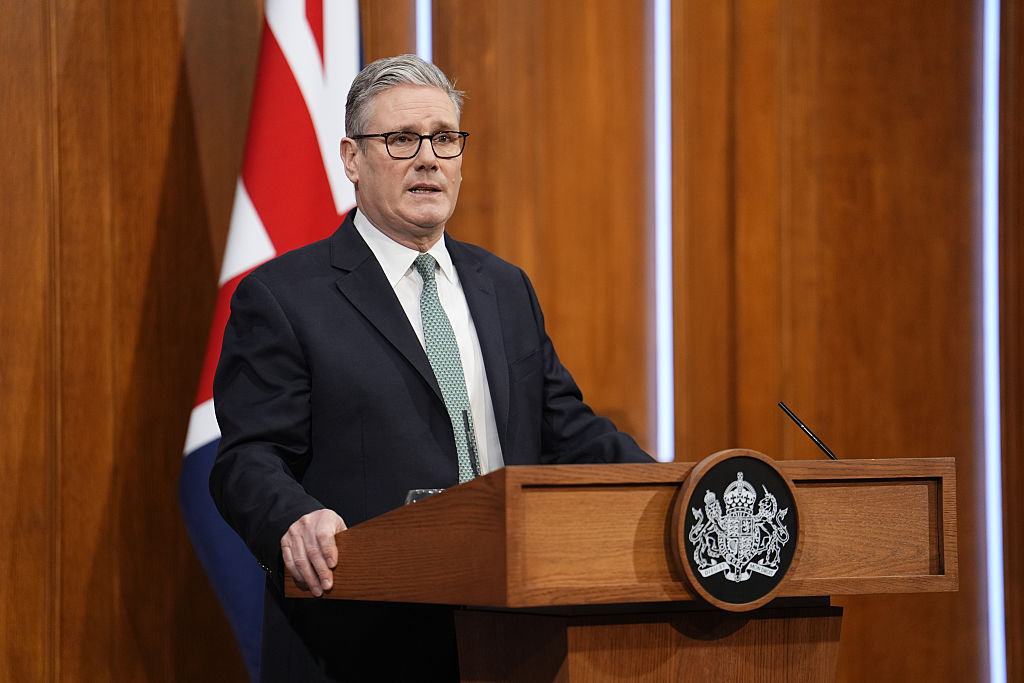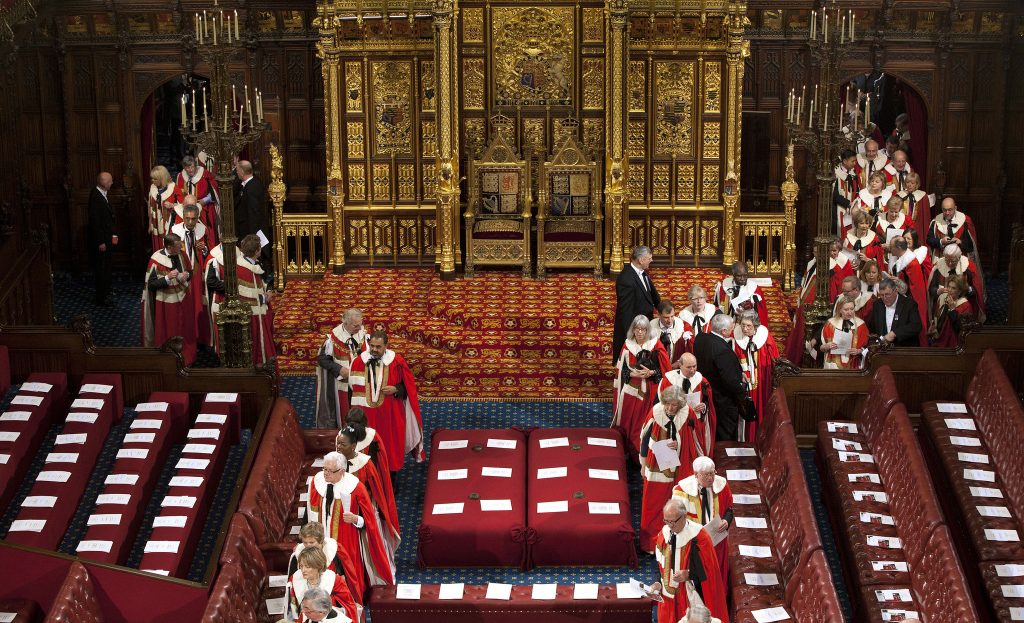Politics
WG consults on new planning process

THE WELSH GOVERNMENT has published proposals to change the way major infrastructure projects are consented.
A new approach is needed because more consenting powers are due to be devolved on April 1, 2019. The Welsh Government is also taking the opportunity to combine a number of existing processes into a single streamlined “one-stop shop” consenting process.
Two stages are being proposed:
- An interim solution requiring changes to existing processes; and
- A long-term solution requiring primary legislation to establish an entirely new form of consent.
The proposals only apply to areas where consenting is devolved.
So for example, in future, projects like the proposed M4 relief road around Newport and the 200 Megawatt (MW) Swansea Bay tidal lagoon would need to be consented through the new process, whereas the 2,700MW Wylfa Newydd nuclear power station would not, because consenting for generating stations with a capacity of over 350MW would remain with the UK Government.
CURRENT SITUATION
Wales currently has three tiers of consenting processes for most infrastructure projects (there are some exceptions):
Smaller projects are decided by local planning authorities;
Larger projects, where consenting is devolved, are decided by the Welsh Government through the Developments of National Significance (DNS) process; and
Larger projects, where consenting is not devolved, are decided by the UK Government through the Nationally Significant Infrastructure Projects (NSIP) process.
Consents by local planning authorities and the Welsh Government are given under the Town and Country Planning Act 1990 (TCPA) – this is often known as planning permission.
NSIPs require a different kind of consent called a Development Consent Order (DCO), which is given under the Planning Act 2008. DCOs can include consents on a range of associated matters – these are often called secondary consents.
NEW POWERS
The Wales Act 2017 devolves further consenting powers which are due to come into force on 1 April 2019:
Energy generating stations with a capacity of up to and including 350MW onshore and in Welsh waters (which is an inshore area out to approximately 12 nautical miles from Welsh shores). This doesn’t include onshore wind which is already devolved with no upper limit; and
Overhead electric lines of up to and including 132 Kilovolts (KV) that are associated with a devolved energy generating project.
In addition, the Wales Act has already devolved consenting for Harbour Revision and Empowerment Orders, which are made under the Harbours Act 1964, for most Welsh ports. These new powers came into force on April 1.
WHY A NEW PROCESS IS NEEDED
The way in which the Wales Act devolves the new powers creates some anomalies which need to be resolved to ensure an efficient and effective approach to consenting.
The consenting powers for energy generating stations and overhead electric lines mentioned above are currently consented by the UK Government through the DCO process.
In devolving these powers, the Wales Act takes consenting for these projects out of the DCO process and places consenting for devolved generating stations in Welsh waters back into the former Electricity Act 1989 process. On land, the consenting of devolved generating stations and associated overhead electric lines is placed into the TCPA process, instead of the Electricity Act. The TCPA has previously not been used to consent this scale of generation project.
For a number of reasons set out in the consultation document, this is seen as a backward step.
In addition, the Welsh Government favours taking a more integrated and streamlined approach to infrastructure consenting. It wants to establish a one- stop shop approach for major devolved projects, similar to the UK Government’s DCO process. This, it argues, would provide more consistent and transparent decision-making, and more certainty for communities and developers alike.
The alternative would be to continue with a number of different processes each with their own requirements, established under separate legislation (including the TCPA, Electricity Act and Harbours Act mentioned above).
The one-stop shop approach also allows a number of secondary consents to be included in the main consent, rather than having to be applied for separately.
Some associated changes to the compulsory purchase process are also proposed.
INTERIM SOLUTION
The Welsh Government says an interim solution is necessary because there isn’t enough time to set up an entirely new process before April 1, 2019.
The interim solution involves amending secondary legislation to include the newly devolved onshore energy generating stations and electric lines within the existing DNS process.
Offshore energy generating stations will be consented under the Electricity Act, with a new fee structure based on full cost recovery. Harbour Revision and Empowerment Orders will continue to be made under the Harbours Act.
Offshore energy generating stations and Harbour Revision and Empowerment Orders can’t be brought into the DNS process because the TCPA, under which the DNS process was established, only extends to the low water mark.
The interim solution is due to come into force on April 1, 2019 and will remain in place until the new process is established. The consultation document suggests this will be after 2020.
LONG-TERM SOLUTION
The long-term solution is to establish a new one-stop shop consenting process that is bespoke to Wales.
The consent would be called Welsh Infrastructure Consent (WIC) and projects captured by it would be called Welsh Infrastructure Projects (WIPs). The Assembly would need to pass primary legislation to establish the new process.
The WIC would consolidate existing consents under the TCPA, Electricity Act, Harbours Act, and a number of other consents made under highways legislation, into one single type of consent. The WIC would also include a wide range of secondary consents, including Compulsory Purchase Orders, Marine Licences and Environmental Permits.
The consenting process would be accompanied by thresholds and policies against which the individual projects can be assessed. Key policies would include Planning Policy Wales, the National Development Framework and the Wales National Marine Plan. The fee structure would be based on full cost recovery.
The WIC process would be designed to be flexible to capture projects of varying types and sizes. It would take a “proportional approach”, enabling certain types of decisions to be made more quickly, and others, which are more complex, to receive greater scrutiny.
This includes introducing a category of optional WIPs that the developer could choose to submit either via the WIC process or to the local planning authority. In the case of offshore projects, where there is no local planning authority, the alternative route for optional WIPs would be via the marine licencing process.
The WIC process would also require developers to engage with local communities before submitting their applications and provide greater opportunity for the public to participate during the examination process. There would also be a specific role for local planning authorities in documenting impact in their areas.
However, the consultation does not address the transfer of regional infrastructure projects away from elected councils and into the hands of unelected so-called ‘City Deal’ boards or their rural counterpart in Mid Wales. The complication of creating a national structure without accounting for looming changes in the delivery of infrastructure services is – as it stands – both unresolved and a likely source of future confusion.
Business
Bid to convert office space into chocolate factory, salon and laundrette

A CALL for the retrospective conversion of office space previously connected to a Pembrokeshire car hire business to a chocolate factory, a beauty salon and a laundrette has been submitted to county planners
In an application to Pembrokeshire County Council, Mr M Williams, through agent Preseli Planning Ltd, sought retrospective permission for the subdivision of an office on land off Scotchwell Cottage, Cartlett, Haverfordwest into three units forming a chocolate manufacturing, a beauty salon, and a launderette, along with associated works.
A supporting statement said planning history at the site saw a 2018 application for the refurbishment of an existing office building and a change of use from oil depot offices to a hire car office and car/van storage yard, approved back in 2019.
For the chocolate manufacturing by ‘Pembrokeshire Chocolate company,’ as part of the latest scheme it said: “The operation comprises of manufacturing of handmade bespoke flavoured chocolate bars. Historically there was an element of counter sales but this has now ceased. The business sales comprise of online orders and the delivery of produce to local stockist. There are no counter sales from the premises.”
It said the beauty salon “offers treatments, nail services and hairdressing,” operating “on an appointment only basis, with the hairdresser element also offering a mobile service”. It said the third unit of the building functions as a commercial laundrette and ironing services known as ‘West Coast Laundry,’ which “predominantly provides services to holiday cottages, hotels and care homes”.
The statement added: “Beyond the unchanged access the site has parking provision for at least 12 vehicles and a turning area. The building now forms three units which employ two persons per unit. The 12 parking spaces, therefore, provide sufficient provision for staff.
“In terms of visiting members of the public the beauty salon operates on an appointment only basis and based on its small scale can only accommodate two customers at any one time. Therefore, ample parking provision exists to visitors.
“With regard to the chocolate manufacturing and commercial laundrette service these enterprises do not attract visitors but do attract the dropping off laundry and delivery of associated inputs. Drop off and collections associated with the laundry services tend to fall in line with holiday accommodation changeover days, for example Tuesday drop off and collections on the Thursday.
“With regard to the chocolate manufacturing ingredients are delivered by couriers and movements associated with this is also estimated at 10 vehicular movements per week.”
The application will be considered by county planners at a later date.
Politics
Ceredigion council tax expected to rise by 4.7 per cent

A BETTER financial settlement for Ceredigion from the Welsh Government along with a fresh grant is expected to see council tax bills in the county rising by less than five per cent this year, far below previous fears of a rise as high as nearly nine.
Last year, for the 2025-’26 budget, Ceredigion saw a council tax rise of 9.3 per cent.
While council tax makes up a proportion of the council’s annual revenue, a crucial area of funding is the Aggregate External Finance (AEF) rate from Welsh Government.
Ceredigion was to receive a 2.3 per cent increase on its settlement, some £3,388,000 for a total of £150,670,000, placing it at joint 13th of the 22 local authorities in Wales.
Following a later Welsh Government and Plaid Cymru agreement additional funding for local government was secured, giving Ceredigion additional funding.
Back in November, before the increased settlement was announced, Ceredigion Leader Cllr Bryan Davies said that early estimates indicated that an 8.9 per cent increase in council tax would be necessary, but an improved position of 6.9 per cent had been indicated as a result of a further modelling of service cost pressures and operational savings.
Following the improved settlement, members at the January meeting of Cabinet heard from Cabinet Member for Finance and Procurement Services Cllr Gareth Davies a recommendation for a 4.75 per cent council tax increase as part of a draft budget requirement of £221.493m was being mooted.
That position has improved again, following financial support towards the Mid and West Wales Fire Service Levy, members of the February 3 meeting of the council’s corporate resources overview and scrutiny committee heard, the funding now dropping the expected council tax increase to 4.7 per cent, equivalent to an extra £7.39 per month for the average Band D property for the next financial year.
Members of the committee agreed to note the 4.7 per cent figure, with the final council tax recommendation being considered by Cabinet on February 10; the final decision on the budget being made by full council on March 2.
international news
Mandelson quits Lords amid police probe over Epstein links

Peter Mandelson has announced he will retire from the House of Lords with immediate effect, as mounting political and legal pressure grows over claims he shared sensitive government information with convicted sex offender Jeffrey Epstein.
Parliamentary officials confirmed that Peter Mandelson formally notified the Clerk of the Parliaments of his decision, ending his membership of the upper chamber from Tuesday (Feb 4).
The move follows reports that the Metropolitan Police Service is reviewing allegations of possible misconduct in public office connected to emails said to have been forwarded to Epstein while Mandelson was business secretary during the 2008–09 financial crisis.
Downing Street has confirmed that material has been passed to police after an initial Cabinet Office review.
Government fury

Prime Minister Keir Starmer told cabinet colleagues Mandelson had “let his country down”, according to No 10, and officials are now drafting legislation that could strip him of his peerage entirely.


Removing a life peer is rare and would require an Act of Parliament.
If passed, Mandelson would lose the title “Lord” altogether — an extraordinary step that has only been considered in the most serious cases.
Senior ministers have described the alleged passing-on of market-sensitive government discussions as “disgraceful” and a “betrayal of trust”.
What police are examining
Misconduct in public office is a centuries-old common law offence that applies where someone in a position of public trust wilfully abuses that role. It carries a maximum sentence of life imprisonment.
Investigators will assess whether confidential information — particularly relating to government financial policy during the crash — was shared without justification and whether safeguards were breached.
At this stage, no charges have been brought.
Mandelson has previously apologised for maintaining contact with Epstein after the financier’s conviction, saying he regrets “ever having known him”, but he has disputed some of the latest claims and has not commented directly on the police review.
Political shockwaves
Opposition parties are pushing for further disclosure of documents relating to Mandelson’s vetting and his past roles.
Conservatives are expected to force a Commons vote demanding more information, while Liberal Democrats have called for a public inquiry.
Several MPs have also suggested Mandelson should be removed from the Privy Council.
The developments mark a dramatic fall for one of Labour’s most influential political figures of the past three decades, who only months ago was serving as the UK’s ambassador to Washington.
Now, with police examining evidence and legislation being prepared to remove his title, his public career appears effectively over.
More updates are expected as the investigation continues.
-

 Health6 days ago
Health6 days agoConsultation reveals lack of public trust in health board
-

 News7 days ago
News7 days agoCaldey still unsafe, survivors warn — despite Abbey’s reform claims
-

 Community7 days ago
Community7 days agoPembrokeshire students speak at national Holocaust Memorial Day event
-

 News21 hours ago
News21 hours agoPrincess of Wales visits historic Pembrokeshire woollen mill
-

 News7 days ago
News7 days agoKurtz raises Gumfreston flooding in the Senedd as petition deadline nears
-

 Crime5 days ago
Crime5 days agoPembroke man accused of child sex offences sent to Swansea Crown Court
-

 Education7 days ago
Education7 days ago‘Vulnerable teen’ questioned by police at Milford Haven School
-

 Education7 days ago
Education7 days agoAttendance concerns at Milford School reflect wider issue raised at the Senedd








































